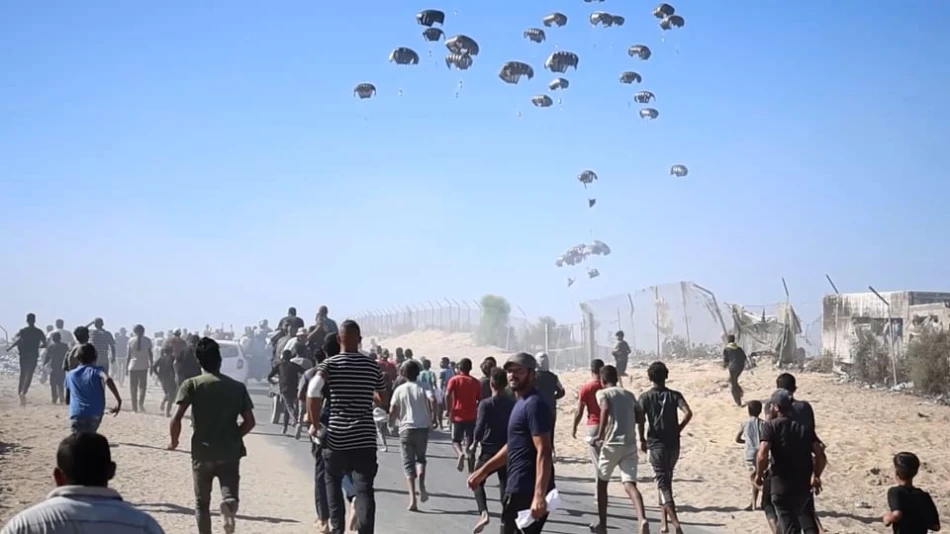
Gaza Residents Express Gratitude to UAE's Mohamed bin Zayed for Humanitarian Aid
UAE Leads Middle East Humanitarian Response with Massive Gaza Aid Operation
The United Arab Emirates has resumed its ambitious "Birds of Goodness" airdrop campaign, delivering critical humanitarian supplies to Gaza's isolated populations while simultaneously coordinating ground convoys through the Rafah crossing. The operation represents the largest single-country aid effort to the Palestinian territory, with UAE contributions accounting for over 44% of all international assistance reaching the enclave.
Operation "Noble Knight 3" Expands Aerial Relief Network
The UAE's latest phase, dubbed Operation "Noble Knight 3," marks the 54th airdrop mission in collaboration with Jordan's Royal Air Force. This partnership has proven essential for reaching Gaza's most isolated areas where ground access remains impossible due to ongoing conflict and infrastructure damage.
Since the "Birds of Goodness" initiative launched, UAE aircraft have delivered approximately 3,725 tons of food and emergency supplies using 193 flights. The scale of this operation places the UAE among the most active humanitarian responders globally, comparable to major international relief organizations.
Strategic Coordination with Regional Partners
The UAE-Jordan partnership reflects a broader trend of Gulf states leveraging regional cooperation for humanitarian diplomacy. Jordan's geographic position and airspace access have made it an indispensable partner, while the UAE provides the logistical capacity and funding that many international organizations lack.
UAE's Humanitarian Diplomacy Strategy
The massive aid operation serves multiple strategic purposes beyond immediate humanitarian relief. The UAE has positioned itself as a stabilizing force in Middle Eastern crises, from Yemen to Syria, using humanitarian assistance as a cornerstone of its foreign policy approach.
Gaza residents have expressed gratitude to UAE President Sheikh Mohammed bin Zayed Al Nahyan, highlighting how humanitarian aid can build lasting diplomatic goodwill even amid complex regional tensions. This approach mirrors successful humanitarian diplomacy models used by countries like Turkey and Qatar in previous regional crises.
Multi-Modal Delivery System
The UAE's comprehensive approach includes air, land, and sea delivery routes—a logistics strategy that reduces dependency on any single access point. This diversification has proven crucial as various crossing points face intermittent closures or capacity constraints.
Regional Impact and International Implications
The UAE's dominant role in Gaza aid delivery—representing nearly half of all international assistance—demonstrates how middle powers can fill gaps left by traditional international mechanisms. While UN agencies and Western governments often face bureaucratic delays, the UAE's streamlined decision-making has enabled rapid response deployment.
This model could influence future humanitarian responses in the region, where Gulf states increasingly serve as primary responders rather than secondary donors. The success of the UAE-Jordan partnership may encourage similar bilateral arrangements that bypass more complex multilateral frameworks.
Sustained Commitment Strategy
UAE officials have emphasized that Palestinian support remains a "humanitarian priority," suggesting this operation will continue regardless of political developments. This long-term commitment contrasts with more conditional aid programs and positions the UAE as a reliable partner for Palestinian civilian needs.
The operation's scale and consistency have established new benchmarks for regional humanitarian response, potentially reshaping expectations for Gulf state involvement in future Middle Eastern crises.
Most Viewed News

 Sara Khaled
Sara Khaled






